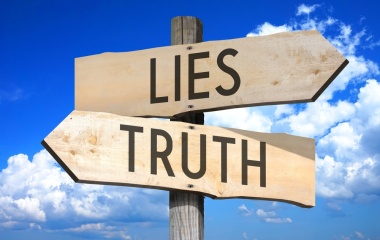
“On Chanukah [we read] the [gifts] of the Neseeim, the leaders of the 12 tribes, [given upon the dedication of the Tabernacle” (Megillah 30b). And so we do each of the eight days of Chanukah.
Yet generally when people talk about the Torah reading for Chanukah they refer to the Yosef story, which is always read on Shabbat Chanukah. This is little more than a coincidence and is due to the fact that we follow the Babylonian practice of an annual Torah reading beginning on Simchat Torah and not the tri-annual cycle which was the practice in the Land of Israel. As Chanukah is some nine weeks after Simchat Torah it so happens that Parshat Mikketz – the 9th sidra of the Torah - is always read on Shabbat Chanukah.
Nonetheless, the Jewish way is to look for meaning and significance even in the coincidences of life. There is much that links the story of Chanukah and Yosef. Both deal with the question of Jewish identity while living in a foreign culture.
Yosef spends the majority of his life in Egypt, rising to great power and success and is the first Jew to raise his children completely outside the Land of Israel. Yet it was not at all certain that Yosef would remain part of the covenantal people. Already in Potiphar’s home he comes close to fully assimilating. He was saved, as our Sages note, from Jewish oblivion only because he reflected on an image of his father, recognizing that he is meant to be part of the family of destiny, and must act accordingly[1].
Rising to great power it is rather surprising, even shocking, that despite the trappings of the Royal Court Yosef did not forget his roots[2]. His revelation to his brothers was more than an act of forgiveness – though that too is rather amazing – it was an act of identification with his family and people. And soon afterwards Yosef fades into the background and little is heard from him as he spends his last years far away from the halls of power. Within a few generations Yosef was a forgotten figure as a new king arose “who knew not Joseph”.
Chanukah celebrates the willingness of 'the few amongst the many, the weak amongst the strong', to insist on the right to practice their faith even as one partakes and participate in the general culture mileu. Yosef did not reject Egyptian practices: his greatness is that he maintained loyalty to his past – and hence his future – while greatly contributing to Egyptian society. Similarly, we do not reject all, even most or much of Greek culture. The Greeks enhanced society in so many ways, ways which we are most thankful for. No lesser a figure than the Rambam embraced much of Greek philosophy, the most “dangerous” discipline from a Jewish religious point of view.
Yet I think there is an additional theme that links the Yosef story with Chanukah. While often not viewed this way both are in many ways tragic stories. Yosef is not truly part of the family – they are living in different worlds - and his reconciliation with his brothers is far from complete. With the death of Yaakov, the brothers fear Yosef will exact revenge upon them and concoct a story that Yaakov told them (while somehow forgetting to tell Yosef) not to do so. Yaakov and Yosef have little to do with one another in the 17 years Yaakov spends in Egypt. Yosef has to be called – twice no less – to his father’s (death) bed. “Yaakov sees the children of Yosef and he said who are they” (Breisheet 48:8). Yaakov does not even know his own grandchildren! And by consolidating power in the hands of Pharaoh, Yosef tragically makes it much easier for his own descendants and the rest of the Jewish people to be enslaved.
Chanukah too could be viewed as a tragic story. For starters the Maccabees were not only fighting the Greeks they were – perhaps primarily – fighting the many fully Hellenized Jews who had no interest in preserving Jewish life. How tragic! But even ignoring those battles, Chanukah celebrates the restoration of the Temple and the “Jewish sovereignty on the Land of Israel for over 200 years” (Rambam, Hilchot Megillah and Chanukah 3:1). That is very nice, but hence in the year 70, Chanukah should have become a time of mourning, a second Tisha B’Av, if you will. With no Menorah, no Temple and no sovereignty how can we celebrate? With exile, persecution and assimilation the lot of so many, perhaps we need to fast for eight days?
The sale of Yosef may have been the reason we had to endure slavery in Egypt. But punishment can be and should offer a means of growth. It was in Egypt that we developed as a nation – hardened by the “iron furnace”. It was in Egypt that we learned the imperative to treat the stranger with love and affection – the most often repeated theme of the Torah. Unfortunately, we needed the Egyptian experience and we are commanded to recall it each and every day for good reason. We need to reflect both on the danger of fighting with our brothers and the need to welcome those who are not.
Our Sages ordained that we observe Chanukah to commemorate how a little light can often last much longer than expected. It is not by chance our Sages compare Torah to light. Chanukah does not celebrate the victory of the war – there is nothing to celebrate (especially) in a civil war. But even as the light of the Temple menorah was extinguished and long dark exile awaited, the Jewish people each and every day prayed for the return to Zion and the restoration of the Temple service.
Chanukah gave and gives hope that light will extinguish much darkness. The Jewish people have brought much light to the world illuminating it in so many ways. No matter how dark it may appear we continue to do our small part in adding light to the world. Let us pray that as we light the chanukiah as day turns to night, the light will bring added light to the world at large.
[1] Our Sages claim that had Yosef succumbed to the advances of Potiphar's wife he would have been lost to the Jewish people.
[2] This was likely aided by the fact that the Egyptian noble class would not fully accept Yosef, refusing even to eat bread with him.



